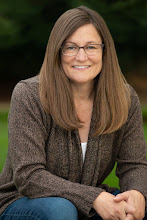Those seeking 100% financing, take note:
___
For a decade, credit-challenged homebuyers have used a regulatory loophole that lets them get Federal Housing Administration mortgages without putting their own money down, while at the same time avoiding costly subprime loans. About 7,000 buyers per month were exploiting the loophole, and now the feds are squeezing it shut. The new policy means that prospective homebuyers with marginal credit will have to act quickly if they want to buy houses without putting any money down. Otherwise, they will have to save for down payments or wait for the FHA to roll out its own zero-down program.
At issue is a controversial method of scraping together the down payment for a house. Many subprime lenders require down payments of at least 5 percent. That's a high hurdle for people who already have credit problems; luckily for those borrowers, loans insured by the Federal Housing Administration require smaller down payments -- as little as 3 percent. Lenders mandate down payments for several reasons, the main one being that borrowers are less likely to stop making monthly payments if their own money is at risk. To make sure that borrowers have something to lose, no lender allows sellers to make down payments on behalf of buyers. But for FHA-insured loans, there has been a way to get around that seller-funded prohibition.
The FHA allows homebuyers to accept gifts of down-payment money from nonprofit organizations. There's your loophole: Since the 1990s, the FHA has grudgingly allowed home sellers to "contribute" money to nonprofits, and for the nonprofits to then "donate" the money to homebuyers. In effect, sellers could fund buyers' down payments, which was a no-no, but the enterprise was technically legal because the money was shuttled through nonprofits. The nonprofits collected service fees from sellers. From 2000 through 2006, more than 650,000 buyers got their down payments through nonprofits, representing about one-third of FHA loan volume.
There was a problem, though: studies commissioned by the federal housing department and Congress concluded that these loans were riskier than FHA loans that didn't involve down-payment gifts. This fall, after years of debate, the Department of Housing and Urban Development adopted a rule that prohibits the down payment money from coming, directly or indirectly, from the seller. HUD administers the FHA. The rule takes effect Oct. 31. The down-payment industry has come to be dominated by two nonprofits: AmeriDream, in Gaithersburg, Md., and Nehemiah Corp. of America, in Sacramento, Calif. Both have asked federal courts to block HUD from enforcing the rule. The housing department won't comment, other than saying it will defend itself in court.
"HUD completely disregarded any effort to fix the problems and improve the program," says Ann Ashburn, president of AmeriDream. Among the improvements she suggests: prohibiting sellers from inflating their sales prices to make up for their down-payment contributions and requiring property appraisers to include the down-payment gifts in their assessments. If the new regulation goes into effect on Halloween, it would immediately end down-payment assistance grants from AmeriDream and all its competitors except Nehemiah. Scott Syphax, president of Nehemiah, says his nonprofit won an automatic extension as a result of litigation against HUD 10 years ago, so Nehemiah will be able to serve as a conduit for down payments until March 31.
The heads of AmeriDream and Nehemiah say the new rule is shortsighted. "This particular rule couldn't have happened at a worse time for working families and for the economy itself," Syphax says. "Over 10,000 homeowners are created every single month utilizing this program. Those people immediately will no longer be served." HUD disputes that the new rule will harm the economy, saying in a regulatory filing that it "will have a positive impact on the housing market and on the economy by reducing the number of mortgages that would otherwise default and go into foreclosure." Ashburn and Syphax say they are outraged that HUD would publish the new rule while the House and Senate are weighing FHA reform. House bill 1852 would bar HUD from implementing the rule and would allow FHA to insure zero-down mortgages. A Senate bill would allow HUD to implement the rule and would lower the down payment requirement to 1.5 percent from 3 percent.
If FHA reform becomes law someday -- and that's not a sure thing -- the minimum down payment is likely to be lowered from the current 3 percent. In the meantime, people who want FHA-insured mortgages will have to save up that 3 percent down payment, apply at Nehemiah before next March, or hope Nehemiah or AmeriDream win their court challenges.
Link:
http://www.sacbee.com/845/story/430216.html
Subscribe to:
Post Comments (Atom)









No comments:
Post a Comment